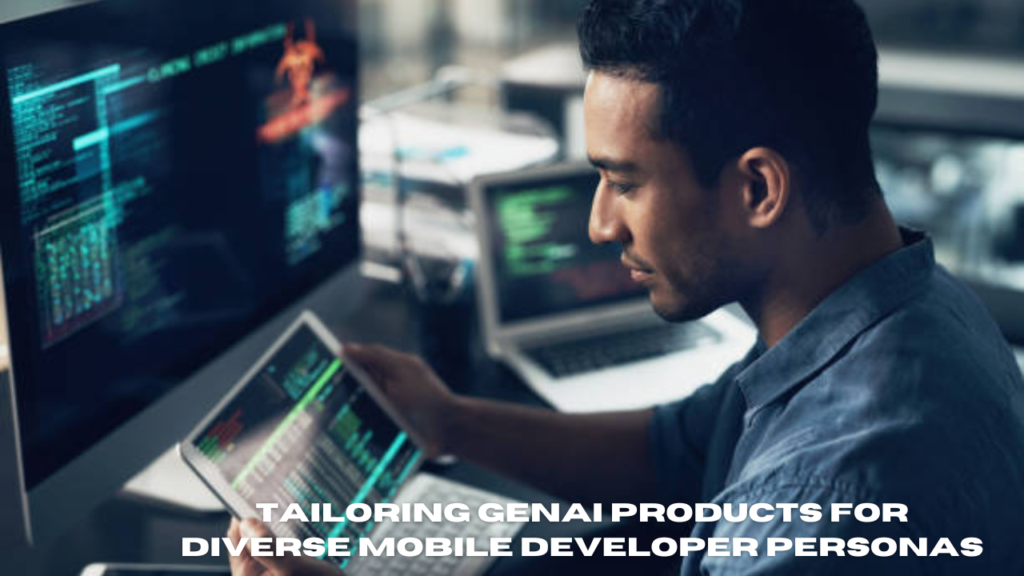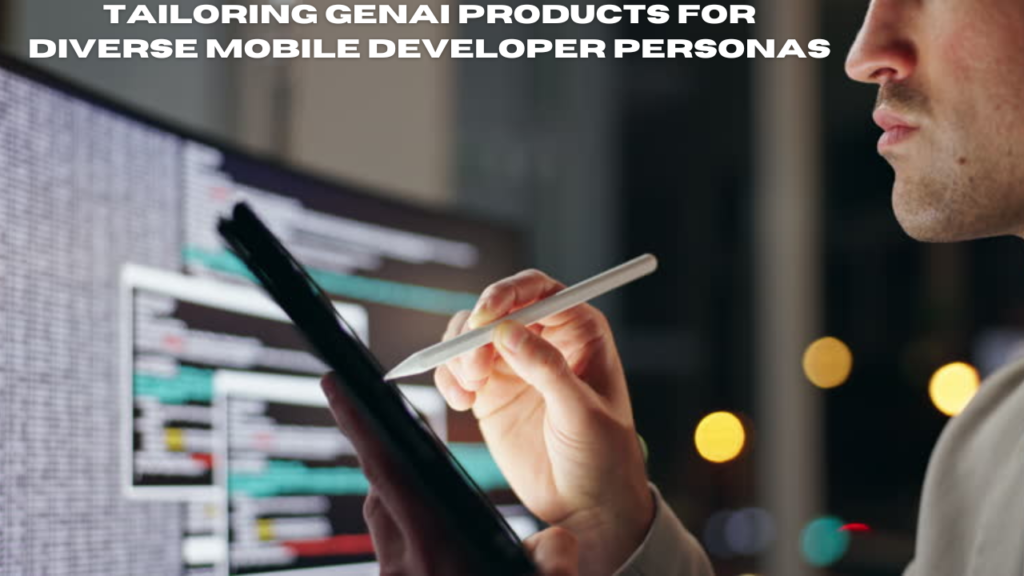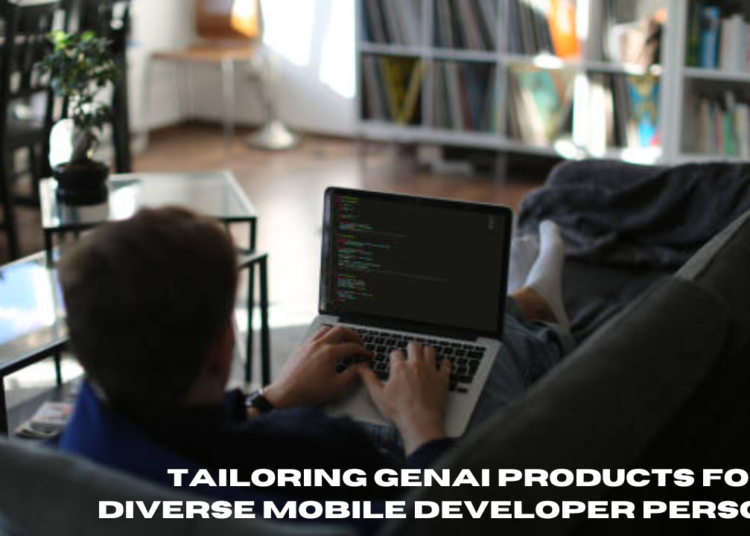Mobile developers play a pivotal role in shaping the user experience in the rapidly evolving world of technology. With the advent of Generative AI (GenAI), the potential to revolutionize app development is immense. However, tailoring GenAI products for diverse mobile developer personas requires a deep understanding of these professionals’ varied needs, skill levels, and goals.
Why Personalization Matters in GenAI Tools
Mobile developers come from diverse backgrounds, ranging from seasoned professionals with years of coding experience to beginners just starting their journey. Some focus on creating games, while others prioritize enterprise applications, utilities, or social networking platforms. Each persona has distinct requirements that must be met for GenAI tools to add tangible value. Without personalization, these tools risk becoming generic and underutilized.
Key Challenges:
- Skill Variability: Developers may have varying expertise in AI integration and mobile frameworks.
- Platform Diversity: Some developers specialize in Android, others in iOS, and many work on cross-platform solutions.
- Project Goals: The objectives of a developer building a high-performance gaming app differ significantly from those of someone designing a productivity tool.
By recognizing these differences, GenAI tools can be designed to offer customized support that addresses individual needs, streamlining workflows and fostering innovation.

Understanding Mobile Developer Personas
To effectively create tools, it’s essential to identify and understand the personas of mobile developers. Here are a few common types:
The Innovator: Innovators are early adopters of technology. They are eager to experiment with cutting-edge tools and often drive trends in app development. GenAI products designed for them should emphasize advanced capabilities, such as predictive modeling and generative design suggestions.
The Pragmatist: Pragmatists focus on delivering reliable, functional apps within tight deadlines. They value efficiency over experimentation. GenAI tools must prioritize automation, debugging assistance, and user interface optimization for these developers.
The Learner: Beginners or developers transitioning into mobile development need intuitive interfaces and educational resources. GenAI tools should offer step-by-step guidance, code samples, and error explanations to help them learn while building.
The Specialist: Specialists often focus on niche areas like augmented reality or cybersecurity. Tailored GenAI products for them should provide domain-specific solutions and integration options.
Strategies for Tailoring GenAI Products for Diverse Mobile Developer Personas
Creating impactful GenAI tools involves a multifaceted approach. Here are some strategies:
Adaptive User Interfaces
A one-size-fits-all approach to design can alienate users. GenAI tools can cater to both beginners and experts by implementing adaptive interfaces. For instance, a beginner might prefer a simplified interface with guided tutorials, while an expert might want quick access to advanced features.
Modular Features
Not every developer needs every feature. By offering modular functionality, developers can choose the tools that align with their specific goals. For example, a game developer might prioritize AI-driven graphics optimization, while an enterprise app creator might need AI-enhanced security protocols.
Cross-Platform Support
Mobile developers often work across multiple platforms. GenAI products should seamlessly integrate with popular IDEs like Android Studio and Xcode and cross-platform frameworks such as Flutter or React Native, ensuring a consistent experience regardless of the platform.
Community and Collaboration Tools
Developers thrive in collaborative environments. Incorporating features like community forums, shared project spaces, and real-time co-editing can enhance the utility of GenAI tools and foster knowledge-sharing and innovation.
Continuous Learning Integration
GenAI tools can serve as on-the-job educators. By embedding tutorials, best practices, and troubleshooting guides, they can help developers improve their skills while working on their projects.
Real-World Examples
Several GenAI products have already embraced customization for diverse personas:
- GitHub Copilot: Tailored to experienced developers and newcomers, it offers code suggestions, error fixes, and even explanations for complex snippets.
- TensorFlow Lite: Aimed at mobile developers working on AI, it provides extensive documentation and pre-trained models for quick deployment.
- FlutterFlow: This tool simplifies app development for beginners while offering advanced customization options for professionals.
The Future of GenAI in Mobile Development
As technology advances, the integration of GenAI into mobile development will become even more sophisticated. Emerging trends include:
- Voice-Activated Development: Allowing developers to code or debug using voice commands.
- Predictive Analytics: Offering real-time predictions about user behavior to help developers optimize their apps.
- Eco-Friendly Solutions: Supporting sustainable development practices by optimizing code for energy efficiency.

Also Read: The How of Digital and Analytics in Insurance TheStudyPoints
Final Review
Tailoring GenAI products for diverse mobile developer personas is not just a technical challenge; it’s a strategic imperative. Companies can create tools that empower developers, streamline workflows, and drive innovation by understanding the unique needs of innovators, pragmatists, learners, and specialists. Personalization will remain at the heart of effective GenAI solutions as the mobile development landscape evolves.











